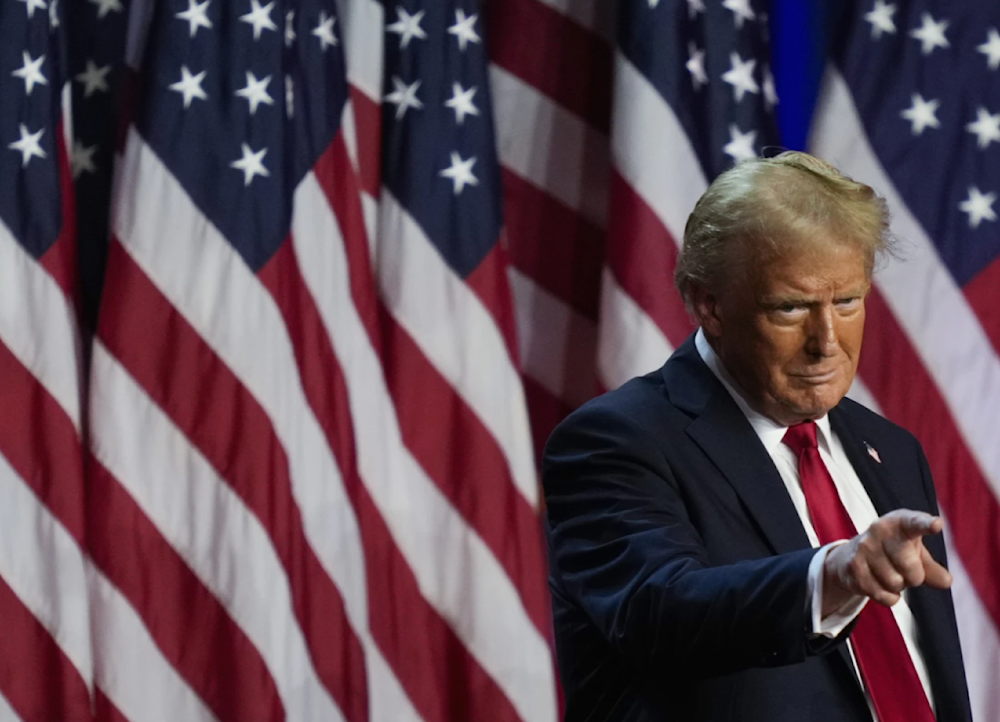How Trump's victory signals the end of US-led postwar order: FT
Many US allies in East Asia and Europe, who have long relied on the US as a security shield, fear that Washington will become more unpredictable and less reliable under Trump.
-

US President-elect Donald Trump points to the crowd at an election night watch party, on November 6, 2024, in West Palm Beach, Florida. (AP)
The Western-led multilateral world order, which prospered after the Cold War and symbolized a more positive collaborative ethos, has been displaying indications of strain for many years, the Financial Times reported.
The recent win of Donald Trump with his "America First" program threatens to hasten its decline — if not render it irrelevant, according to FT.
A senior EU official warned that this victory is "very, very bad for everyone," referring not only to Europe but to Asia, Africa, the Middle East, and South America.
Some leaders believe a US that recedes from its usually dominant role in the global arena opens up opportunities for nations like Brazil and Indonesia to play a larger role in influencing the world.
However, the US election results have already thrown global policymaking into chaos. Two global summits are slated for the next two weeks: the COP climate negotiations in Baku, followed by the G20 leaders' annual gathering in Rio de Janeiro.
Their proposed agendas may be undermined as Trump has long made clear his indifference, if not disdain, for such multilateral gatherings that the US has hosted as the world’s leading power for three decades.
According to Christoph Heusgen, head of the Munich Security Conference, “We are seeing how much the world order, the one that was built after the Second World War with the UN charter at the center, will be increasingly under pressure." Calling Trump an authoritarian, he expects that "at least a part of what he has announced will be implemented.”
Many US allies in East Asia and Europe, who have long relied on the US as a security shield, fear that Washington will become more unpredictable and less reliable under Trump.
As for NATO, Trump has questioned whether the US will honor the alliance's mutual defense clause. NATO officials are unsure whether this poses a real threat to the historic understanding or it’s merely rhetoric designed to pressure them into spending more on defense.
On Thursday, EU leaders met in Budapest for a summit and attempted to put a brave face on the future of multilateralism. "Today's geopolitical context requires us to strengthen the multilateral system and make it more inclusive," the EU's senior diplomat, Josep Borrell, told the Financial Times, explaining that "EU-US co-operation and shared leadership is instrumental, to avoid alternative models to take over, which in the longer term will be to the detriment of both the EU and the US interests."
Even before a potential second Trump administration threatens to ignite a global trade war, the World Trade Organization is already in peril while the UN Security Council has returned to the frozen impasse of the Cold War years. The new President is expected to impose significant tariffs on US imports, further fueling the global shift toward protectionism and a retreat from Brussels' free trade model.
Meanwhile, the World Bank and the International Monetary Fund, which have shaped global economic policy since their founding in 1944, now find themselves caught between two opposing forces as a result of Trump's unilateral victory.

 3 Min Read
3 Min Read








